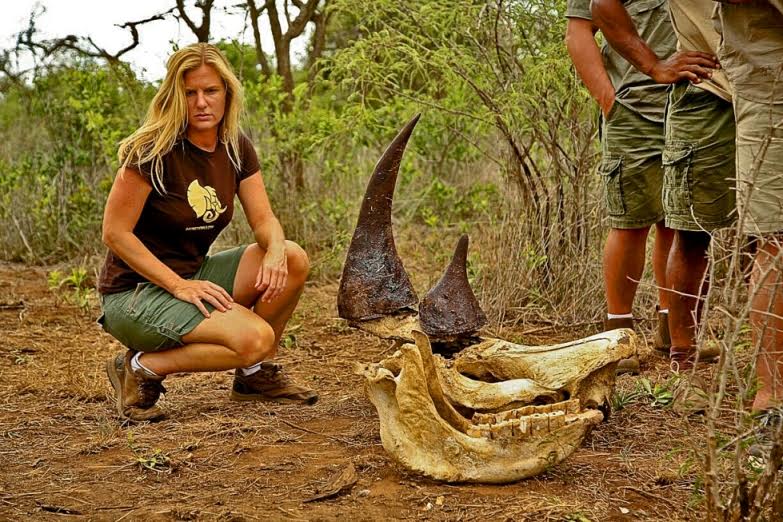
Jamie’s Blood Rhino Blacklist – Magistrate Number 2
In January I began the process of exposing an apparently corrupt network of magistrates, lawyers and police in KwaZulu-Natal (KZN) that has allowed accused rhino poachers and rhino horn traffickers to evade conviction and jail time despite thorough, detailed evidence being presented against them. On 10 April of this year, the revered Public Protector of South Africa Thuli […]

In January I began the process of exposing an apparently corrupt network of magistrates, lawyers and police in KwaZulu-Natal (KZN) that has allowed accused rhino poachers and rhino horn traffickers to evade conviction and jail time despite thorough, detailed evidence being presented against them.
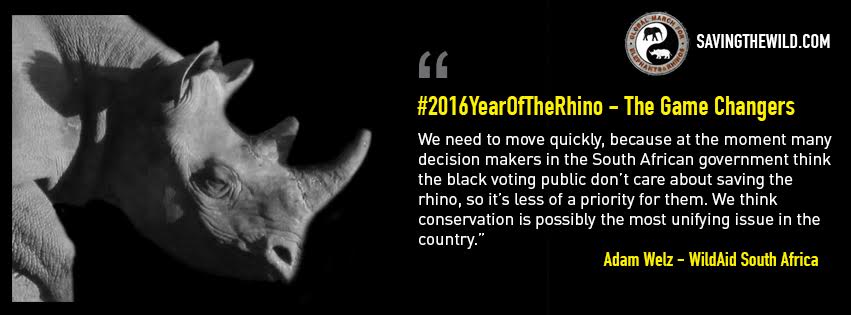
On 10 April of this year, the revered Public Protector of South Africa Thuli Madonsela accepted my case and launched a preliminary investigation into corruption enabling rhino poaching.
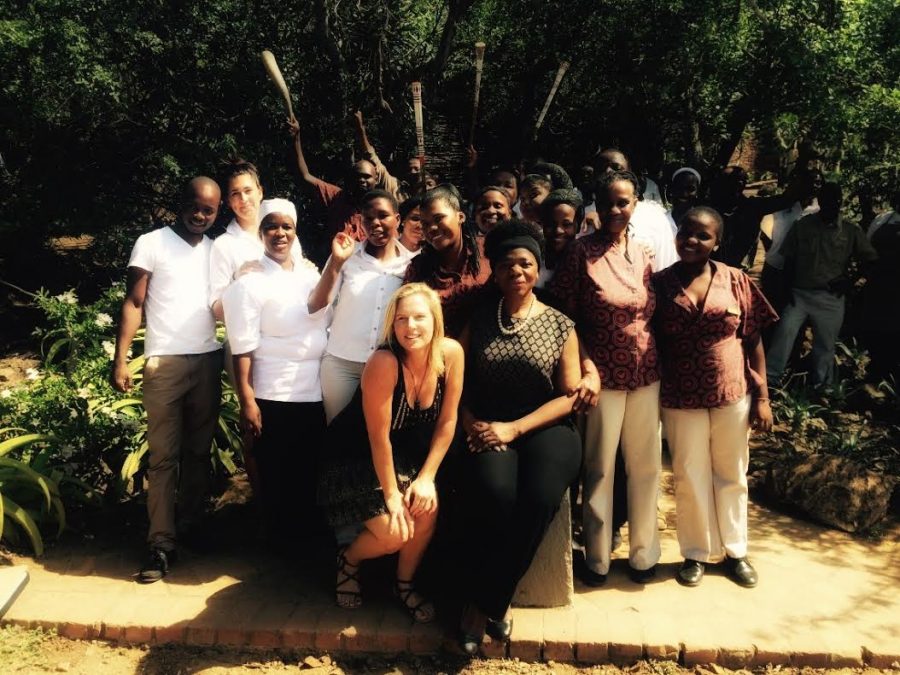
Rhino poaching is currently surging in KZN, the poachers almost certainly encouraged by failures in the justice system.
Central to my initial revelations was Magistrate Deuteronomium Ncgobo, who presided over multiple rhino poaching cases at the Mtubatuba courthouse during which suspects pleaded guilty and were given extremely small fines and no jail time.
In these particular cases the poachers were represented by defence attorney Mr Z.W. Ngwenya.
Questionable legal decisions need to be addressed as clearly the law is not acting as a deterrent; such as the pattern emerging when Magistrate Velengaziwa Mkhwanazi of the Ubombo court resides over rhino poaching cases in Zululand.
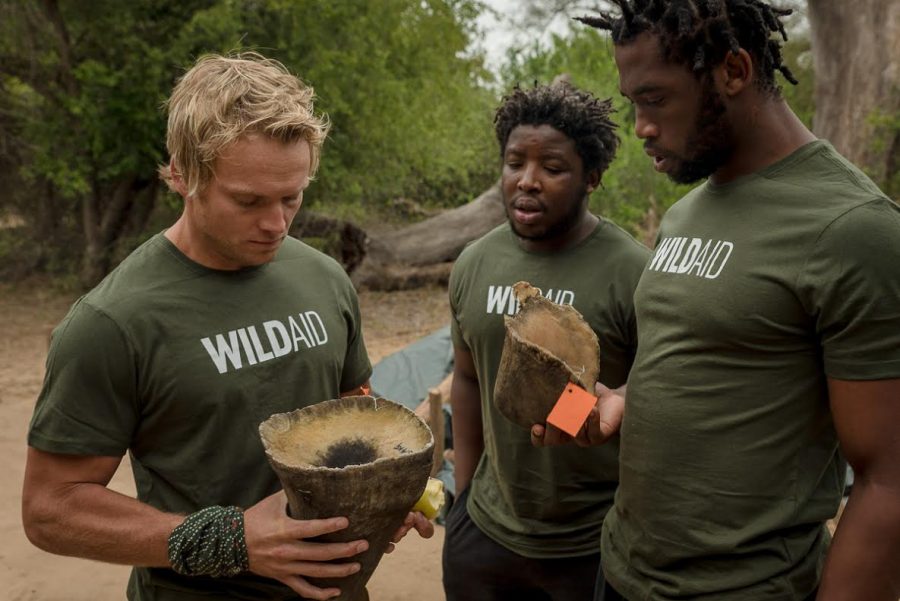
In January 2015, Warrant Officer Christopher Gumbi of the Jozini Crime Intelligence unit was arrested near Ubombo after allegedly pointing a weapon at two undercover police agents.
The agents were posing as poachers and carrying ‘sting’ rhino horns, which Gumbi allegedly took from them.
He then fled in an unmarked police vehicle carrying fake registration plates.
According to a media statement from the South African Police Service, “The suspect was charged for armed robbery, possession of rhino horn and defeating the ends of justice.”
Warrant Officer Gumbi’s defense attorney was Ngwenya and he was granted zero bail by Magistrate Mkhwanazi.
Gumbi was later acquitted of all charges by Magistrate Ngcobo who claimed the police fabricated the charges. (Case number 31/01/2015) Gumbi was also later acquitted in the police departmental hearing and continues to work for the Jozini Crime Intelligence unit.
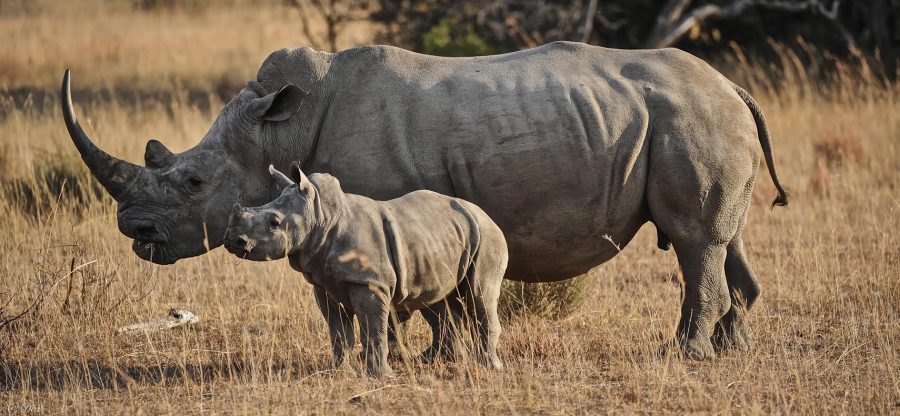
Rewind to December 2014, and defense attorney Ngwenya also represented alleged rhino poaching kingpin Dumisani Gwala (Trial starts 5 September) after he was arrested in a complicated sting operation in collaboration with Ezemvelo KZN Wildlife.
Dockets of conspiracy to deal in rhino horn, dealing in rhino horn, attempted murder and resisting arrest were opened.
Magistrate Ngcobo released six of his implicated luxury vehicles seized under the Prevention of Organised Crime Act.
The South African Police Services immediately obtained a court order to repossess the vehicles, but when the Asset Forfeiture Unit arrived at Gwala’s house, he had a five litre container of petrol and threatened to burn the vehicles if the police officers didn’t back off.
The vehicles then ‘disappeared’ and only one has been recovered.
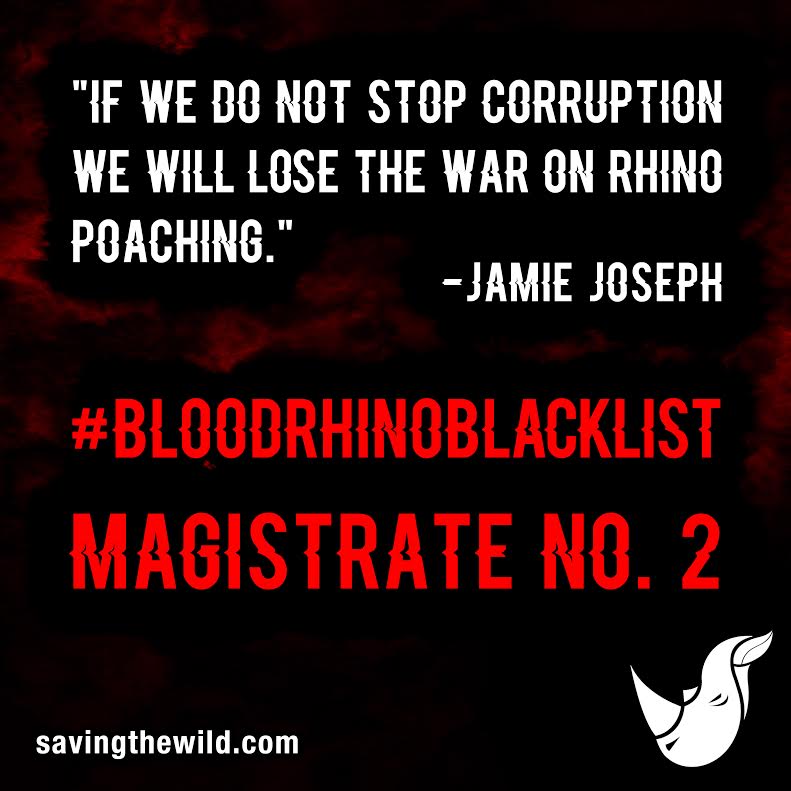
Then there are cases where poachers simply disappear after being released on bail by Magistrate Mkhwanazi, such as Soli Bendane.
In May 2013 members of Ezemvelo KZN Wildlife stopped a group of alleged rhino poachers on the Jozini Bridge.
They were carrying a .375 rifle with silencer, ammunition and an axe. The suspects were represented by defence attorney Ngwenya. Even though he was apparently a Mozambican citizen without ID, Bendane was granted bail of R500 (US$32) by Magistrate Mkhwanazi. When Bendane did not return to court the charges were withdrawn against the other accused. (Case number 93/05/2013 Jozini)
In January 2013, on entering a Northern Zululand reserve Joseph Tamele was arrested whilst in possession of a .458 rifle, ammunition and silencer.
Tamale, also apparently a Mozambican without ID, faced charges of conspiracy to hunt rhino, hunting of a specially protected species, and possessing an unlicensed firearm and ammunition.
He was represented by defense attorney Ngwenya and came before Magistrate Mkhwanazi who granted him bail of R300 (US$20).
Tamele absconded and is nowhere to be found. (Case number 57/01/2013 Ubombo)
Luck finally ran out for convicted poacher Musa Sibaya when he was arrested in Pongola last year with a group hunting rhino. (Case number 70/07/2015 Hluhluwe) In his previous arrest he was represented by defense attorney Ngwenya and went before Magistrate Mkhwanazi. He pleaded guilty and was let off with a fine.
But on his most recent arrest he had a different lawyer and went before a different magistrate; Magistrate Badenhorst in the Hluhluwe court denied him bail and he is currently locked up behind bars awaiting trial.
Many key members of the conservation and judicial community agree that all rhino related cases should be forwarded to a green court; an environmental speciality court.
Corruption is the silent killer in this wildlife genocide.
The fathers and sons from the rural communities that border wildlife areas are being recruited by ruthless criminal syndicates to do the poaching for very little reward.

When a magistrate convicts a poacher and punishes him with a fine and no jail time, poachers often have no other means to pay off their fine than to kill another rhino.
Fines, compounded with bribes -a debt owed to the kingpin – is dragging families into a vicious circle of crime, robbing South Africa of its natural heritage, and destroying an iconic species that has survived 50 million years on this planet.
In a recent survey commissioned by WildAid, the results turned conventional conservation wisdom on its head. Their data show that South Africans of all races and backgrounds are extremely interested in wildlife and do care about the future of wild rhinos.
In fact, in a country in which people divide along race and class lines about many important matters, South Africans are strongly united about the need to conserve their wildlife.
The survey results show that 80 percent of black South Africans said they would be “very sad” if wild rhinos were to become extinct in the wild, compared to 84 percent for coloured, 83 percent for Indian and 81 percent for white South Africans.
In this war on greed, the story is not poachers being arrested; the story is that the conviction rate is ashamedly low.
If we are to honour the anti poaching rangers and police that are out their risking their lives to save what little wildlife we have left, then we should honour them with justice.
***
Jamie Joseph is the founder of savingthewild.com and has recently initiated an anti-corruption fund to expose and eradicate corruption enabling poaching. Follow Saving the Wild #BloodRhinoBlacklist on Facebook and Twitter.
